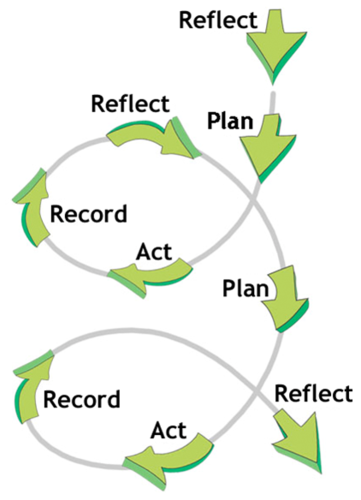Action Research

Action Research is an approach that studies, incorporates, or contributes to a change in the situation or object being researched. Commonly used in academic disciplines that emphasise practice, such as education research, and by practitioners, it actually incorporates a variety of approaches that focus in some way on change. As such it can be used in Research as Activism, and is related to Participatory Action Research which is a variant of Action Research that conducts research collaboratively. However, unlike these two approaches, Action Research is not necessarily an explicitly politicized research approach. It can, though, be useful to Transition.
+problem
"The best way to understand something is to try and change it"
"Nothing is as practical as a good theory"
(Kurt Lewin)
+background
Action Research was coined by the US psychologist Kurt Lewin, working in the 1940s. He introduced the cycle of reflection and action. Although it is often seen, mistakenly, as a very practical approach, Action Research laid the foundation for seeing theory and practice as integrated (what Paolo Freire later came to call "praxis"). Both take place repeatedly and simultaneously during all stages of a research project. This also influenced iterative research approaches such as Grounded Theory where changes to questions, as well as findings, emerge continually through a research inquiry, as the researcher responds to data and observations in the field.
The key point of interest for Transition research is that Action Research is a way to directly inform understanding of which practices and actions have which effects, and therefore ensure a good chance of Creating Positive Change.
+solution
Action Research is a useful approach for learning about what changes to practice further the aims of Transition, and/or for critiquing practice.
